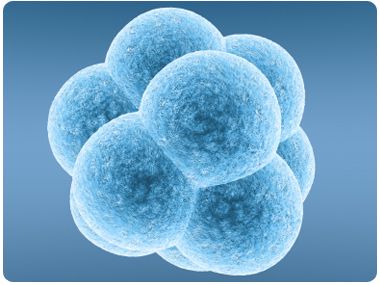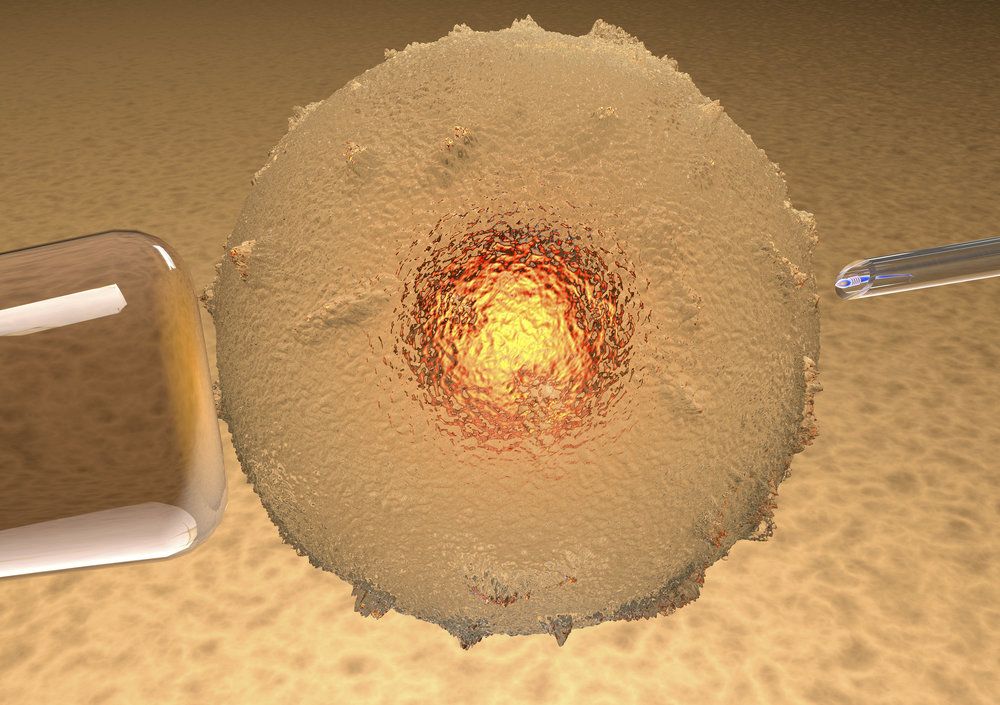Working to Ensure the Health of Your Child with PGT-M (Preimplantation Genetic Diagnosis) Genetic Screening & Gender Selection
Many hopeful parents worry about the health of their developing baby.
At the Center for Fertility and Gynecology, we offer PGT-M (PGD) and PGT-A (PGS), as well as gender selection, to ease your mind during pregnancy.
Learn more about these advanced services offered at our Tarzana, Bakersfield, Thousand Oaks, and Torrance offices...
Learn more about our screening services from our teams in the Los Angeles area...
Pre-implantation Genetic Testing (PGT)
PGT-M (PGD) Takes Place as Part of In Vitro Fertilization
What does PGT-M (PGD) screen for?
Testing for Genetic Abnormalities
PGT-M (PGD) is designed to help patients in Los Angeles, Tarzana, and Bakersfield who have known genetic abnormalities in their family line. This type of testing is commonly recommended for individuals and couples in which one or both partners have a high risk of passing on a genetic defect. The main benefit of this type of diagnosis is to ensure that embryos with these genetic defects are not selected for implantation during IVF.
So how do you know if you should undergo PGT-M (PGD)?
Is PGT-M (PGD) really worth the extra step?
A Better Way to Select Which Embryos to Use
PGT-M (PGD) allows genetic analysis of an early embryo, before it is transferred into the uterus. PGT-M (PGD) is similar to other invasive prenatal screening tests, such as amniocentesis and chorionic vilus sampling (CVS), except it is done prior to implantation. Therefore, the information one gains from the test can be used to determine which embryo(s) to put into the uterus. CFG is proud to offer all PGT-M (PGD) services in our state-of-the-art laboratory serving patients in Los Angeles, Tarzana, and Bakersfield.

So what is the timeline for PGT-M (PGD)?
About PGT-M (PGD) and PGT-A (PGS)
Similar to CVS and amniocentesis, PGT-M (PGD) is able to detect three basic genetic characteristics in the embryo:
- Chromosomal aneuploidy - an abnormal number of chromosomes (e.g. Down’s Syndrome, Trisomy 13, Trisomy 18, Turner’s Syndrome…)
- Single gene defects - specific genetic mutations leading to known diseases (e.g. Cystic fibrosis, Tay-Sachs, Thalassemia…)
- Gender (male or female)
To perform PGT-M (PGD), couples must undergo IVF with or without ICSI to allow formation of early embryos in the laboratory. When embryos are three days old (typically containing 7-8 cells), PGT-M (PGD) is performed by inserting a tiny needle into each embryo and removing 1 or 2 cells (called blastomeres). Various techniques of gene amplification and chromosomal analysis are next applied in order to analyze removed blastomeres for their genetic make-up. Normal embryos are then transferred into the uterus within 24 hours of the procedure. Numerous animal and human studies have documented the safety of PGT-M (PGD) and its benefits in assuring that a healthy embryo is chosen for transfer.

Understanding the Benefits of PGT-M (PGD)/PGT-A (PGS)
PGT-M (PGD) testing at our Tarzana, Bakersfield, Thousand Oaks, and Torrance locations offers many benefits for patients who carry sex-linked genetic disorders, single gene and chromosomal disorders, and patients over the age of 35. This testing provides great insight into the health of individual embryos so that patients can increase their chances of conceiving and delivering a healthy baby.
Sex Selection
Another benefit of PGT-M (PGD) is that it allows our patients to choose the gender of their children if they want. By testing for the presence of the Y chromosome in an embryo, we can select whether patients have male or female embryos implanted. Not only does this allow patients to choose the gender of their child, but it also allows us to avoid choosing embryos that might suffer from sex-linked genetic diseases, like hemophilia.
The PGT-M (PGD) Process
PGT-M (PGD) is performed after the sperm and eggs have been joined in our laboratory. Multiple studies have shown that testing the cells of a newly formed embryo is completely safe for its future development. In essence, this type of testing is very similar to the prenatal testing that is performed on fetuses in utero, but it is much less invasive. It also allows patients the chance to ensure that they avoid serious and potentially fatal complications.
Additional Testing Options
PGT-A (PGS) is another common type of test that is often used during IVF. This type of screening ensures that embryos have the proper number of chromosomal pairs (23) and are free from structural abnormalities. PGT-A (PGS) is commonly recommended for patients who are over the age of 35 or patients who have experienced recurrent pregnancy loss.
PGT-M (PGD)/PGT-A (PGS) FAQs
Q: What is preimplantation diagnosis or PGT-M (PGD)?
A: PGT-M (PGD) is a procedure that screens for specific genetic diseases for couples that are at known risk for transmission to their children. PGT-M (PGD) can be offered in combination with in vitro fertilization, in which a cell from an embryo is extracted and tested as a means for couples to avoid passing on any severe genetic disorders to their offspring. Embryos created using IVF are tested for the genetic condition and selected out prior to implantation in the uterus.
Q: What disorders can PGT-M (PGD) be used to screen?
A: PGT-M (PGD) can be used to screen for many conditions including Down Syndrome, Trisomy 21, Tay Sachs Disease, hemophilia A and B, Gaucher’s Disease, and Sickle Cell Anemia. Testing for the most common chromosomal problems allows the physician to determine which embryos will likely result in a healthy pregnancy. PGT-M (PGD) can also possibly provide information about why previous fertility treatments failed. The PGT-M (PGD) success rates are similar to regular IVF.
Q: What is gender selection?
A: PGT-M (PGD) can be used for gender selection for a few reasons. For example, if the couple wishes for a child of a particular sex. Many times couples already have a child of one sex and want to have another child of the other gender. Some genetic diseases can only occur in a particular gender. One example of this is hemophilia A and B, which are generally X linked recessive and occur in males. Gender selection success rates approach 100 %.
Q: What does the PGT-M (PGD) process entail?
A: PGT-M (PGD) is performed in conjunction with the in vitro fertilization cycle to produce embryos for biopsy. Once the embryos mature they are ready for the PGT-M (PGD) procedure. A small sample of the embryos DNA is taken for examination. Embryos with the correct number or chromosomes or of the selected sex and without genetic defect are transferred to the mother.
Gender Selection
Gender selection allows determination of the gender of the child to be born. Couples in Los Angeles, Tarzana, and Bakersfield may be interested in this service for several reasons including gender specific genetic diseases or family balancing. Importantly, this technique does not “create” male or female embryos. It is however, effective at selecting either male or female embryos to be placed into the mother’s womb.
Gender Specific Genetic Disease
 If a gender specific genetic mutation is known to be present in one of the parents, gender selection poses a viable means of avoiding that disease. For example, certain genetic disorders (e.g. Duchenne Muscular Dystrophy) result from a genetic mutation on the X chromosome, which is a sex chromosome. If an intended mother carries the mutation on one of her X chromosomes (although she is not affected with the disease), there is a 50% likelihood of having an affected male offspring, while there is essentially a 0% chance of having an effected female offspring. In this situation, a couple may desire to select only female embryos to be transferred. If, on the other hand, an intended father is a carrier of a Y-linked mutation (e.g. a deletion leading to low sperm count), a couple may wish to perform sex selection for a female offspring. Females, who do not have a Y chromosome, would not be affected, while male offspring may be infertile.
If a gender specific genetic mutation is known to be present in one of the parents, gender selection poses a viable means of avoiding that disease. For example, certain genetic disorders (e.g. Duchenne Muscular Dystrophy) result from a genetic mutation on the X chromosome, which is a sex chromosome. If an intended mother carries the mutation on one of her X chromosomes (although she is not affected with the disease), there is a 50% likelihood of having an affected male offspring, while there is essentially a 0% chance of having an effected female offspring. In this situation, a couple may desire to select only female embryos to be transferred. If, on the other hand, an intended father is a carrier of a Y-linked mutation (e.g. a deletion leading to low sperm count), a couple may wish to perform sex selection for a female offspring. Females, who do not have a Y chromosome, would not be affected, while male offspring may be infertile.
Testing for such mutations and the baby's gender can be performed during pregnancy by invasive prenatal tests such as chorionic villus sampling (CVS) or amniocentesis. However, if an affected baby is detected the patient would be faced with a difficult decision of whether to terminate the pregnancy (which may not be an option for some couples) or to continue the pregnancy and deliver a baby that is affected by a specific genetic disease. Such a scenario becomes unlikely when gender selection is performed in advance.
Family Balancing
 Gender selection may also allow couples in Los Angeles, Tarzana, and Bakersfield to balance the number of male or female offspring in their family. For example, couples who have already had several children of only one gender (e.g. all girls), may be interested in having a child of the opposite gender next. If the sole purpose of having another child is to obtain the desired gender, and/or if a couple would consider terminating a pregnancy if the gender of the baby was found to be (later on in the pregnancy by CVS or amniocentesis) of the "undesired" type, gender selection of embryos may be a reasonable option for that couple.
Gender selection may also allow couples in Los Angeles, Tarzana, and Bakersfield to balance the number of male or female offspring in their family. For example, couples who have already had several children of only one gender (e.g. all girls), may be interested in having a child of the opposite gender next. If the sole purpose of having another child is to obtain the desired gender, and/or if a couple would consider terminating a pregnancy if the gender of the baby was found to be (later on in the pregnancy by CVS or amniocentesis) of the "undesired" type, gender selection of embryos may be a reasonable option for that couple.
Technique
A variety of conventional and non-conventional methods exist for gender selection, all with limited success. The most accurate available method is PGT-M (PGD). With accuracy nearing 100%, PGT-M (PGD) has been established as a safe and effective method for gender selection. CFG is delighted to offer couples gender selection by PGT-M (PGD).
Choosing Your Baby's Sex with Gender Selection Treatment
Gender Selection Sex and Advanced Fertility Treatment
In our society of increased technology, dreams like advanced fertility treatment our now a reality with innovations like gender selection sex.
Many people are completely unaware of what gender selection sex actually is. The concept of advanced fertility treatment allowing couples to actually choose what sex their child will be is a foreign one. Doctors can test a baby’s gender in two ways, genetic testing or sperm sorting before actual conception. Genetic testing can be used as a gender selection sex technique but only where there are clear medical grounds to do so. Advanced fertility treatment like sperm sorting cannot however.
With the help of advanced fertility treatment like gender selection sex, we know have multiple methods for parents to successfully decide the sex of their child. Being able to determine your child’s sex requires effective and medically sound services practiced by official fertility clinics which specialize in gender selection sex and other advanced fertility treatment methods.
Located in Tarzana, Bakersfield, Thousand Oaks, and Torrance and led by Dr. Michael Vermesh, The Center for Fertility and Gynecology is the leading provider of gender selection sex and advanced fertility treatment throughout the California area.
Dr. Vermesh and his team of specialized fertility doctors and staff have been helping couples with all of their fertility needs through the use of state-of-the-art and advanced fertility treatment. The Center for Fertility and Gynecology’s genetic screening utilizes current technology in efforts for successful gender selection sex. By incorporating knowledge of genetics, chromosomes and mutations Dr. Vermesh provides all of his clients with the very best gender selection sex therapy offered today.
When visiting Vermesh.com, visitors can take advantage of some of the most detailed online information about advanced fertility treatment. Dr. Vermesh and his staff urges all individuals who are considering taking part in treatment like gender selection sex to visit Vermesh.com to learn more about the specific practices and procedures that are undergone. Despite showcasing the specific treatment methods, take time to also visit our client testimonial section. First-hand accounts from patients who have successfully undergone advanced fertility treatment like gender selection sex are there for all visitors to read.
So visit Vermesh.com today and learn how the very best provider of advanced fertility treatment can help with your gender selection sex needs and requirements.
Please select one of our provided links now to learn more about gender selection sex and other advanced fertility treatment offered only at The Center for Fertility and Gynecology.
Choosing Your Baby's Sex
PGT-M (PGD) involves screening the embryos created during an IVF cycle BEFORE they are returned to the uterus. A single cell is removed from the embryo and the genetic material is examined to screen for abnormalities. Particularly useful for couples with a known history of genetic disease, this early screening of embryos allows only embryos without known genetic defects to be returned to the uterus. Some of the diseases which may be screened out with this procedure include Downs Syndrome (Trisomy 21), Cri du Chat (Trisomy 18), Tay Sachs disease, Huntington's disease and cystic fibrosis as well as many X-linked diseases. PGT-M (PGD) may also be used to look for chromosomal aberrations as an explanation for repeated miscarriage and/or failed previous IVF cycles.
After three days in culture the embryos typically reach the 8-cell stage. One to two cells are removed from each embryo on day 3 and analyzed by one of the techniques described below:
(A) Testing for the genetic mutation is performed only on cell(s) removed from each embryo. The cells are tested by a very powerful technique called fluorescent polymerase chain reaction (F-PCR) that has the capacity to make millions of copies of the piece of DNA of interest so that a reliable diagnosis can be made on each embryo. The product from the F-PCR reaction is then tested for the presence or absence of the known parental mutation(s) using a range of genetic techniques. Currently this testing is performed at the laboratory of Dr. Mark Hughes at Genesis Genetics Institute.
(B) For examining chromosomal defects the cells are analyzed using a technique call fluorescence in-situ hybridization or FISH. This technique uses probes, small pieces of DNA that match the chromosomes of interest to study the cell’s chromosomal make-up. Each probe is labeled with a different fluorescent dye. These fluorescent probes are applied to the cell and attached to the chromosomes. Under a fluorescent microscope, the geneticist counts the chromosomes, and, for translocation cases, can distinguish normal cells from cells with an unbalanced translocation.
Some doctors analyze an embryo’s DNA so parents can choose to have a male or female placed in the womb. Last year, a survey found that 1 of every 11 Pre-Implantation Genetic Diagnosis treatments was for sex-selection alone. The study by Johns Hopkins University also found that 42 percent of clinics offering PGT-M (PGD) offer it for sex selection.
The Center for Fertility and Gynecology
The Center for Fertility and Gynecology has been providing comprehensive fertility services since 1987. We use innovative techniques to achieve some of the highest pregnancy rates nationwide. Dr. Michael Vermesh and Dr. Tannaz Toloubeydokhti are proud to be affiliated with a range of prestigious organizations, including:
- The American College of Obstetricians and Gynecologists
- American Society for Reproductive Medicine
- Society for Reproductive Endocrinology and Infertility
For more information about our services, contact us online or call (818) 881-9800 today.







